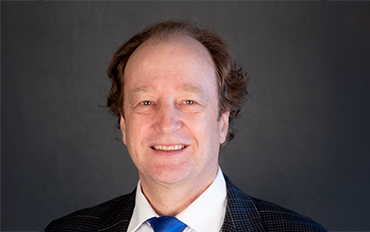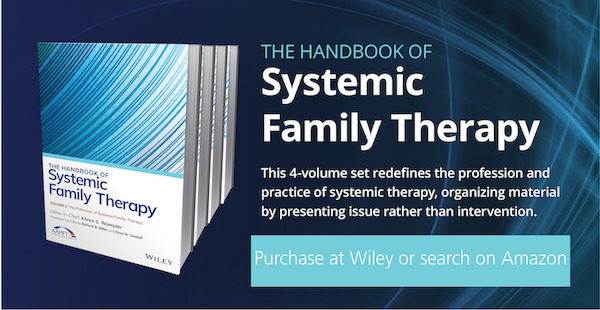
MFTs Supporting Oncology Survivorship
FEATURES
Perimenopause and Early Trauma: A Systemic Approach for MFTs
Perimenopause, the transitional phase before menopause, brings hormonal shifts that manifest as hot flashes, mood swings, and sleep disturbances, impacting not just the individual but their entire family system (Santoro, 2016). Recent research reveals that early trauma, such as childhood abuse or adversity, intensifies perimenopause symptoms, creating unique challenges for families (Carson et al., 2022; Thurston, 2025).
Holly Hanley, DBH
Beyond Remission: How Marriage and Family Therapists Support Oncology Survivorship
The completion of active cancer treatment is often associated with anticipated relief for most individuals and families. Appointments are spaced out, side effects subside, and crisis-related language is eased. However, for many survivors and their loved ones, this phase is characterized by less finality and more ambiguity.
Zahra Muse, MS
How Can MFTs Help Racially and Ethnically Minoritized Individuals Navigating Online Dating?
For many, dating apps represent hope and possibility. For racially and ethnically minoritized individuals, however, the experience is often more complicated. Despite the shift to digital dating, societal pressures and stereotypes remain prevalent.
Eman Tadros, PhD, Annemarie Sohn, MA, & Jixuan Zhao, MSW
Ethics + Legal
Ethical Considerations for MFTs in Combined Supervisory and Ownership Roles
The landscape of mental health practice, particularly within smaller clinical settings, often presents unique ethical challenges for marriage and family therapists (MFTs). Many MFTs find themselves wearing multiple hats—clinical supervisor, administrative supervisor, and owner/boss—especially in group practices or solo practitioner settings where the lines between roles can blur. This confluence of roles creates a complex web of multiple relationships, demanding careful navigation to uphold the ethical standards of the profession.
John Robbins, PhD, Shelby Riley, MS, & Megan Dolbin-MacNab, PhD
AAMFT News
- NEW! 2025 Workforce Study
- Gender Affirming Care Guidelines
- Register now for the 2026 Leadership Symposium in Atlanta!
- Online Therapy Guidelines
- Access MFTs: Licensure Portability
Departments
Perspectives
“Over Advocacy”: Fighting for Trans Rights in the Face of Erasure
Historically, transgender nonconforming (TGNC) people were subjected to psychoanalysis, pathologizing, and various conversion therapy strategies. As a result, internalized trans negativity/transphobia became prevalent in our current healthcare system. So, where does that leave us as clinicians? We live in a country where cis and heteronormativity (the assumption that everyone identifies with the sex assigned at birth and is heterosexual) is the “norm.” No one knows why certain people are transgender or gender nonconforming, but we know that they have existed pre-colonization for millennia.
Gretchen Cooper, MA
A Message From the President
Influencing the Global Growth of Systemic Family Therapy
This year, AAMFT launched an exciting new initiative, the Global Systemic Therapy Summit. In early July, the inaugural summit took place in Nairobi, Kenya, and I was extremely fortunate to attend the summit. I do not say this lightly when I declare that this was the most meaningful family therapy conference I have attended in my career, and I have been to many events over the last 30 years.
Adrian Blow, PhD
Perspectives
Could Pebbling be the New Practice for Relational Aliveness?
Every day, despite what life demands from us as educators, friends, daughters, and partners, both of us find ways to exchange little clips, memes, and funny stories via social media. These are meaningful digital breadcrumbs that keep us connected throughout the day as we experience life in both personal and professional roles.
Danna Abraham, PhD & Afarin Rajaei, PhD
Perspectives
Masters in Marriage and Family Therapy: What Are We Fit For?
This question has been at the forefront of my mind as I began my job search during the final semester of my Master’s program in MFT. The program offered more than academic excellence—it fostered a sense of personal growth, connecting with our souls, guided by remarkable faculty and facilities, where I witnessed transformations in the lives of many students.
Deblina Jha, MBA
Legal + Ethical
No Lawyers, No Courtroom, No “Battle”: The benefits of non-attorney mediation in family disputes
In these intense and polarized times, it sometimes seems like every disagreement and dispute, big or small, ends in locked horns, a fight to the finish, or a falling out. From political discourse to social media interactions, it can feel like we’ve forgotten how to cooperate, find common ground, and work together toward creative solutions.
Mae Villanueva, MA
“
FTM is a connector to and from diverse family therapy practice, policy, supervision, and research leaders.
 —Angela Lamson, PhD, LMFT
—Angela Lamson, PhD, LMFT
“
With cutting-edge and relevant articles, the FTM is the place I find practical systemic information.
 —DeAnna Harris-McKoy, PhD
—DeAnna Harris-McKoy, PhD
“
The magazine is great because it shows what other remarkable things my fellow colleagues are doing in the field.
 —Sheldon Jacobs, PsyD, LMFT
—Sheldon Jacobs, PsyD, LMFT











